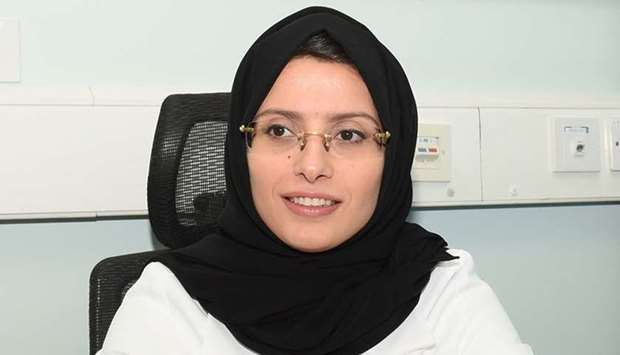A Glaucoma Specialist at HMC's Ophthalmology Department has urged residents to undergo regular eye examinations to prevent vision loss and other eye-related complications.
In Qatar, the most common vision impairments treated include glaucoma, cataracts, and diabetic retinopathy, said Dr. Zakia Mohamed Al Ansari.
Over 10,000 patients with various eye conditions and disorders visited the Ophthalmology Department at Hamad Medical Corporation (HMC) between January and July of this year, with close to 1,000 patients being treated for glaucoma, informed Dr. Al Ansari, stressing the importance of regular eye examinations to avoid vision loss.
“It is important for everyone, including children, to have regular and comprehensive eye exams to identify avoidable eye diseases such as cataracts and glaucoma. People with diabetes especially need to maintain proper eye care to avoid retinopathy or vision impairment or loss,” said Dr. Al Ansari.Diabetic retinopathy is a diabetes complication that affects the eyes. It's caused by damage to the blood vessels in the retina. At first, diabetic retinopathy may cause no symptoms but eventually it can cause blindness. The condition can develop in anyone who has Type 1 or Type 2 diabetes. Cataracts which result in a clouding of the eye’s lens are the most common cause of vision loss in people over age 40 and the principal cause of blindness in the world. . Glaucoma is a group of eye conditions that damage the optic nerve, which is vital to good vision. Some types of glaucoma are associated with elevated pressure inside the eye. In adults, diabetes nearly doubles the risk of glaucoma.
Commenting on HMC’s role as the leading public healthcare provider for Qatar, Dr. Al Ansari said World Sight Day, the international health day held annually on the second Thursday of October, provides an opportunity to raise awareness of avoidable visual impairments.
She noted that almost 80 percent of cases of visual impairment can be avoided through the appropriate treatment if diagnosed early. She added that regular check-ups are essential for individuals with a high risk of vision impairment, such as those living with diabetes.
HMC provides an eye screening program for all infants born at its hospitals and advises that children have follow-up screenings when they are six months old, three years old, during pre-school and a yearly screening thereafter.
HMC’s Ophthalmology Department also provides comprehensive eye testing and specialized diagnostic services such as Optical Coherence Tomography (OCT), Electrophysiology, and corneal imaging via referral from primary health care clinics, HMC physicians, and private sector hospitals and clinics.
To schedule an eye exam, visit your primary health care clinic. Patients are seen at HMC’s Ophthalmology Department through a referral from a primary health care or private clinic.

